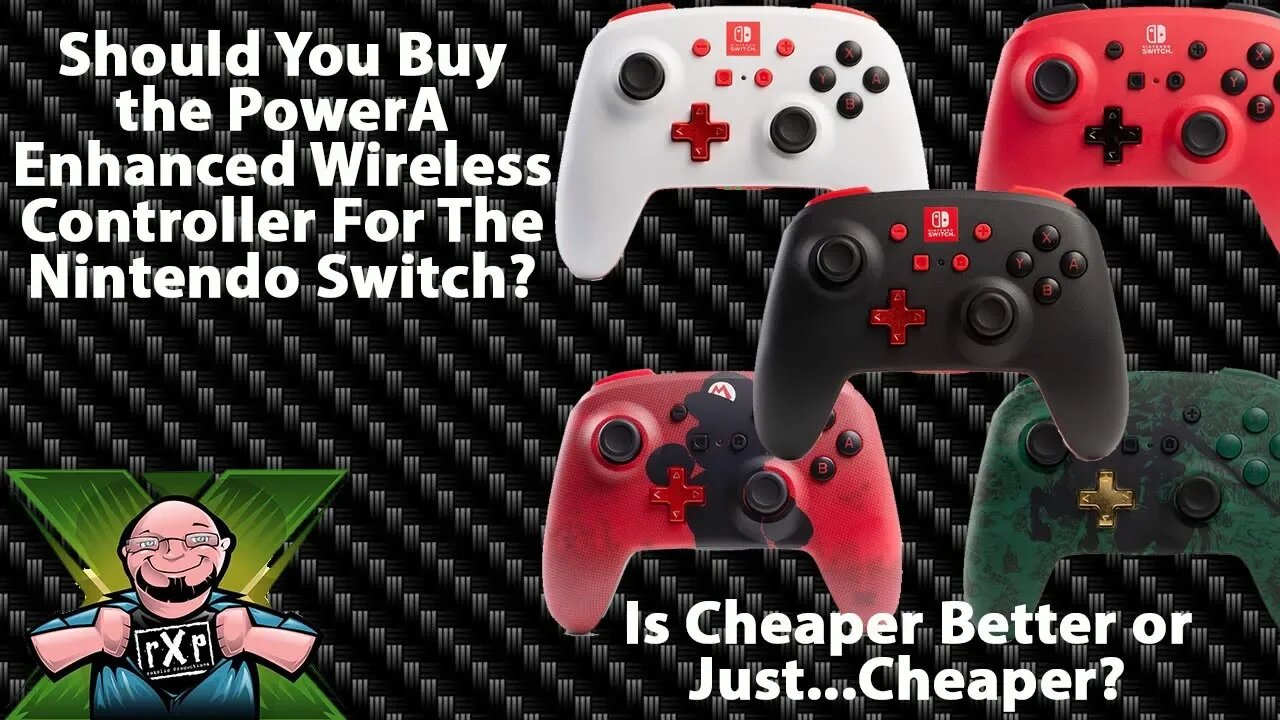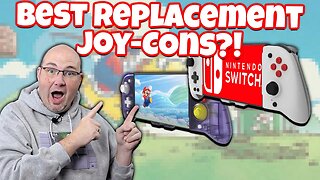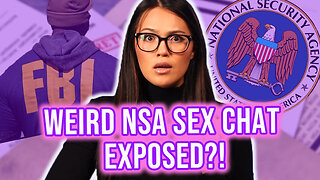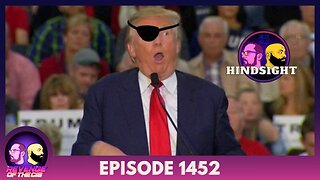Premium Only Content

Should you buy the PowerA Wireless Enhanced Controller for the Nintendo Switch
In this video, we unbox and test out the PowerA Enhanced Wireless controller for the Nintendo Switch.
The Nintendo Switch has a number of official controller options, from the official Joy Cons and Joy Con Grips to the exceptional Pro Controller. One downside to both of those solutions, however is cost. PowerA has a number of different accessories for the Switch and other systems, including a full line of controllers, both wired and wireless. Their Enhanced Wireless controller for the Switch has a lot of people talking, so much so that my curiosity got the best of me and I picked one up for myself to test.
The face of the EWC has the same sort of button layout as the Pro Controller. Capture button, +, - and home buttons are all here, as are the A/B/X/Y. Two analog sticks are placed in about the same locations as the stock sticks, however the thumb rests of the sticks are a bit smaller than the Pro Controller. The L/R Triggers are also in the same basic locations as the Pro Controller, however they are of a different size. The main L/R triggers are slightly broader than the Pro Controller's, which I liked a lot. However the LZ and RZ triggers were slightly narrower than the Pro Controllers, making them slightly smaller. Why PowerA decided to increase the size on one set of triggers and reduce the size on the others I don't understand.
Unlike the Pro Controller the EWC doesn't use a rechargeable battery pack; instead it is powered by 2 AA batteries. This was a bummer, I really like the Pro Controller's rechargeable option. Also missing from the EWC is rumble, HD or otherwise. This to me is a HUGE miss from PowerA, even more than the lack of a rechargeable battery. This is something that really needed to be in this controller at this price. Also missing is any Amiibo support or compatibility.
I noticed rather quickly that the dead band in the analog sticks was considerable. I also felt like the D-pad was amazingly stiff and rigid, too much so initially. The D-Pad did eventually free up and "break in" as I used it, but it was definitely not something I liked. When playing Street Fighter I did find the D-Pad made it easier to pull off Ryu's Dragon Uppercut than the analog stick, so that is one plus.
I spent a lot of time playing Horizon Chase Turbo, we even live streamed our initial reactions to the game using this controller. For this game the analog sticks were used for steering while the triggers were used for gas and brake. This actually felt decent as I played, and unlike the experiences I found in platformers, the dead band didn't hurt the performance.
Why it RoX:
- At $49.99 it is $20 less expensive than the Pro Controller
- Available in a number of different colors and schemes
- Analog gimbals felt smooth
- Better form factor than using the Joy Con Grip
- Supports Gyro Controls
- Decent battery life on included AA batteries
What Could Be Improved?
- No rechargeable battery
- Cheap feel in the hand
- D-pad was way too rigid
- A lot of dead band in the sticks
- No rumble
- No Amiibo Support
Should you buy one?
If the Enhanced Wireless Controller was $29.99 or even $39.99 you could justify buying one, however at $49.99 I'd recommend spending the extra $20 and going with a legit Pro Controller from Nintendo instead. The EWC just didn't deliver the value I would have hoped, and lacking key features such as Rumble,
Rechargeable Batteries and Amiibo support make this a no-go for me. If that wasn't enough, however, I didn't like the overall cheap feel of the EWC, the overly stiff D-pad nor the large dead band of the analog sticks.
The footage used in this review are used under the Fair Use laws, referenced below:
https://www.law.cornell.edu/uscode/text/17/107
Notwithstanding the provisions of sections 106 and 106A, the fair use of a copyrighted work, including such use by reproduction in copies or phonorecords or by any other means specified by that section, for purposes such as criticism, comment, news reporting, teaching (including multiple copies for classroom use), scholarship, or research, is not an infringement of copyright. In determining whether the use made of a work in any particular case is a fair use the factors to be considered shall include—
(1) the purpose and character of the use, including whether such use is of a commercial nature or is for nonprofit educational purposes;
(2) the nature of the copyrighted work;
(3) the amount and substantiality of the portion used in relation to the copyrighted work as a whole; and
(4) the effect of the use upon the potential market for or value of the copyrighted work.
The fact that a work is unpublished shall not itself bar a finding of fair use if such finding is made upon consideration of all the above factors.
(Pub. L. 94–553, title I, § 101, Oct. 19, 1976, 90 Stat. 2546; Pub. L. 101–650, title VI, § 607, Dec. 1, 1990, 104 Stat. 5132; Pub. L. 102–492, Oct. 24, 1992, 106 Stat. 3145.)
-
 20:46
20:46
RoXolidProductions
11 months ago $0.02 earnedThis Nintendo Switch Grip Comes IN CLUTCH + Blows the Split Pad Out of the Water
2075 -
 LIVE
LIVE
Wahzdee
2 hours agoSniper Elite Then Extraction Games—No Rage Challenge! 🎮🔥 - Tuesday Solos
1,133 watching -
 LIVE
LIVE
Robert Gouveia
1 hour agoSenator's Wife EXPOSED! Special Counsel ATTACKS; AP News BLOWN OUT
3,050 watching -
 LIVE
LIVE
Barry Cunningham
7 hours agoTRUMP DAILY BRIEFING - WATCH WHITE HOUSE PRESS CONFERENCE LIVE! EXECUTIVE ORDERS AND MORE!
2,505 watching -
 LIVE
LIVE
Game On!
2 hours agoPUMP THE BRAKES! Checking Today's Sports Betting Lines!
304 watching -
 1:27:21
1:27:21
Redacted News
2 hours agoBREAKING! SOMETHING BIG IS HAPPENING AT THE CIA AND FBI RIGHT NOW, AS KASH PATEL CLEANS HOUSE
72.3K73 -
 1:08:28
1:08:28
In The Litter Box w/ Jewels & Catturd
22 hours agoCrenshaw Threatens Tucker | In the Litter Box w/ Jewels & Catturd – Ep. 749 – 2/25/2025
46.8K27 -
 44:57
44:57
Standpoint with Gabe Groisman
22 hours agoWill Byron Donalds Run for Florida Governor? With Congressman Byron Donalds
15.2K2 -
 DVR
DVR
Savanah Hernandez
1 hour agoEXPOSED: FBI destroys evidence as NSA’s LGBTQ sex chats get leaked?!
29.8K4 -
 LIVE
LIVE
Revenge of the Cis
3 hours agoEpisode 1452: Hindsight
1,448 watching